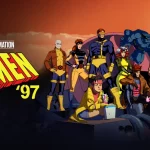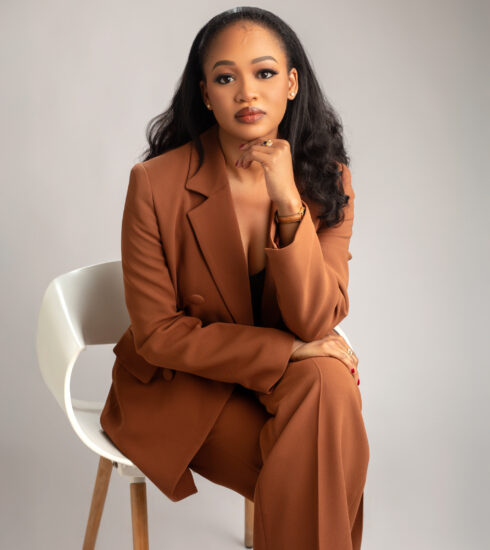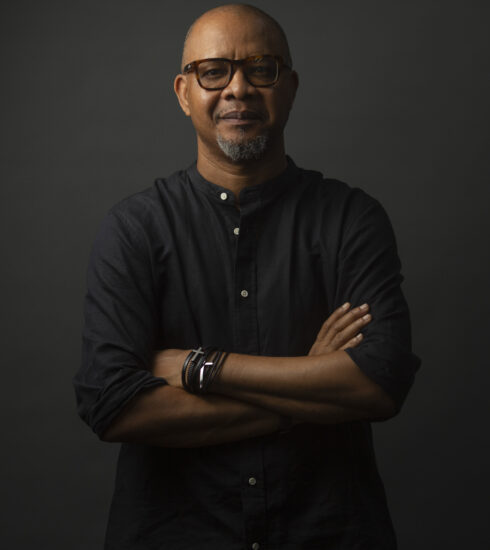Omoni Oboli: Filmmaker And Storyteller
Filmmakers have a significant influence on shaping the film industry. They enliven stories with their unique storytelling, igniting debates and promoting societal change. These tales frequently subvert expectations, draw attention to social problems, and inspire action. In addition to providing entertainment, filmmakers have utilised their profession to promote social change and raise awareness of important issues such as women’s rights, domestic abuse, and other critical concerns.
Among the Nollywood directors leaving a lasting impression is Omoni Oboli. She has been in the industry for a long time and is still well-known for her ability to convey compelling and thought-provoking stories. She is an actress, scriptwriter, director, and producer. Her well-known film series Wives on Strike, which debuted in 2016 and had a sequel in 2018, is the ideal illustration of this. Both films combined lighthearted elements with serious subjects, highlighting problems like women’s rights and domestic abuse. Omoni is now prepared to bring back the charm, humour, and social impact that viewers have grown to love in the much-awaited third part, The Uprising: Wives on Strike 3.
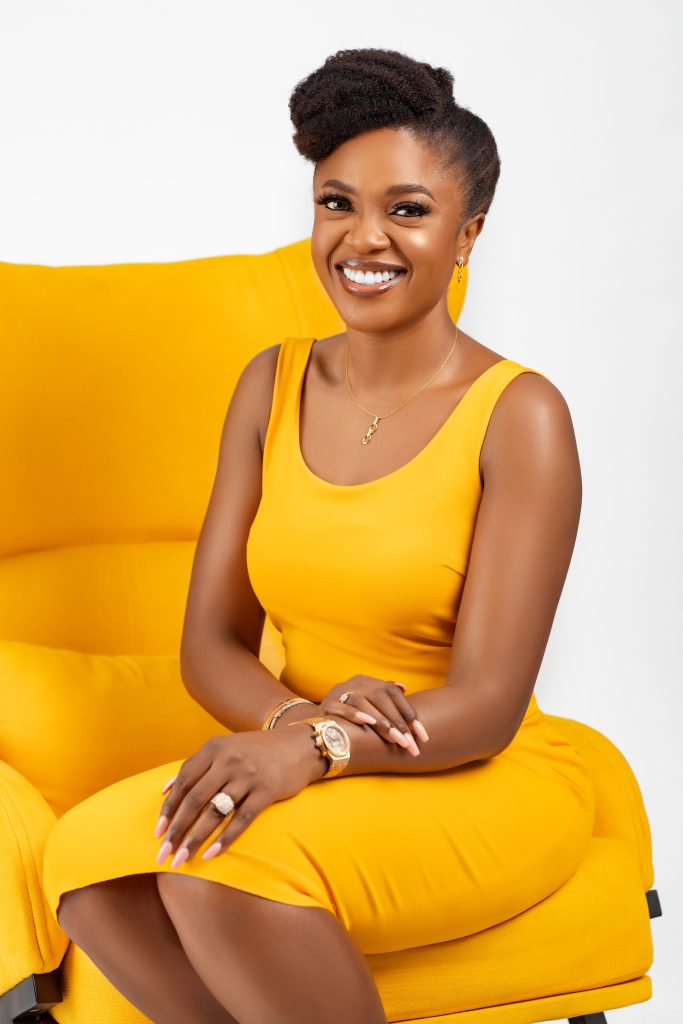 In this interview with THEWILL DOWNTOWN’s Dorcas Akintoye, Omoni Oboli discusses her journey as a filmmaker, the inspiration behind The Uprising, and how she continues to use her platform to drive conversations around social change. She also opens up about her personal life, including her recent experience of becoming a grandmother and what this new phase means for her personally and professionally.
In this interview with THEWILL DOWNTOWN’s Dorcas Akintoye, Omoni Oboli discusses her journey as a filmmaker, the inspiration behind The Uprising, and how she continues to use her platform to drive conversations around social change. She also opens up about her personal life, including her recent experience of becoming a grandmother and what this new phase means for her personally and professionally.
How did your journey into acting begin, and what inspired you to pursue a career in Nollywood?
I first got into the industry way back when it was called “Home Video”. Friends of mine from school, UNIBEN, had gone to Lagos and seen and been a part of productions. When they got back, they had stories to tell, and I couldn’t wait to go with them on their next trip back to Lagos. I met a few of the veterans then, and after some ‘waka pass’ (playing extras) roles, I finally landed a speaking role as RMD’s and Liz Benson’s maid in a movie. To me, I had arrived! It was a taste of something I never wanted to let go of. It was purpose and fulfilment all in one for me. I was like a fish in water. After that, I got the lead roles in Fidelis Duker’s and Hilda Dokubo’s movie Another Campus Tale. Everything was perfect. My friends and I went through all the teething stages of actors in that era. There were no cellphones, so we had to take public transport to joints where we were most likely to hear about movie auditions, then take public transport to designated spots where the results of the auditions would be pasted on a board. Somehow, it didn’t matter as much then because our excitement made the suffering and hustle less daunting than it was. The downside was that my school work suffered greatly. I was already a first-class material, and I couldn’t cope with work and school, especially then when the movie industry wasn’t particularly structured. The disruptions took its toll, and not wanting to disappoint my mother who had practically sacrificed so much to get me into the university, I gave up on my dream of being an actress to complete my studies. I finished with a 2nd Class Upper division, and as soon as school was done I had planned to do a master’s degree in France because I had studied foreign languages, majoring in French, but that was not to be either. I got married as soon as I finished school, and with all that and childbearing, Nollywood was not to be until after 10 years. I came back as the new girl and found it nearly impossible to break into the industry as an actor, let alone landing a leading role position I once held. This was until Lancelot Imasuen introduced me to Emem Isong. Lancelot had directed me in a lead role earlier in 1996 when I first started in the industry. She auditioned me, along with her friend Vivian, and both gave me confidence that I had what it took to be a leading lady. Emem was doing a movie then, but told me that she would’ve given me a role but my talent was way beyond a small role, which is all that was available in the movie she was preparing for at the time. She asked me to be patient until the right movie came along, and it did. I played alongside Genevieve and Desmond in the movie Unfinished Business, and the rest is history. Before I broke in, I was writing scripts of my own story and helping with other people’s stories. One such story is what Emem produced, and I was given the supporting role. In writing such scripts, I began to nurse the idea that I wanted to make my movies, now called Nollywood films, and this made me enroll in the New York Film Academy in New York, where I studied movie directing. My first movie Being Mrs Elliott became my directorial debut, and since then, acting, directing, and producing have been my passion and work.
You’ve played many diverse roles over the years. Which role has been the most challenging for you, and why?
As an actor, my role in Lonzo Nzekwe’s classic Anchor Baby was the most emotionally draining for me, owing to the subject matter of the movie, while Kunle Afolayan’s The Figurine was the most physically exerting. My role as a movie producer is also very challenging for me. The fact that I am producing, directing, and acting is the role to end all roles. Directing is fun and gratifying to see the finished product from start to finish, knowing that you did not only act in it but directed every aspect of it. It’s in a combination of directing and acting and producing these movies that the challenge is. If it was just directing, I may have some moments of rest in between to recoup, but I’m either directing a scene, acting in a scene, or taking care of production logistics and issues while acting and directing the scenes. This is what makes it such a daunting task that if I didn’t enjoy what I do it would have led to me burning out. It’s challenging, but if anyone could do it, then it would be easy. Like a woman after giving birth, when the production is done and dusted, and after the resting period, you can’t wait to get into another project that’s gotten you excited again.
What’s the most valuable lesson you’ve learned in your acting career?
Acting affords me the pleasure of playing so many roles, being so many different kinds of people, and going through so many different emotions and experiences in one lifetime. I’ve learned to enjoy them all and judge them all while living them all. This has led me to understand life’s most important thing: that acting is a job and not your reality. For any good actor, getting into and out of character takes time and emotional stress, and it can take its toll on you if you don’t have a good support system to manage such high and low emotional investments into a character and project. So, I’ve learned to value family even more and the peace and tranquillity that comes with having that aspect as a stabilising force in my wholeness as a person. Family reminds me about what’s most important, and that life is not drama unless you make it so.
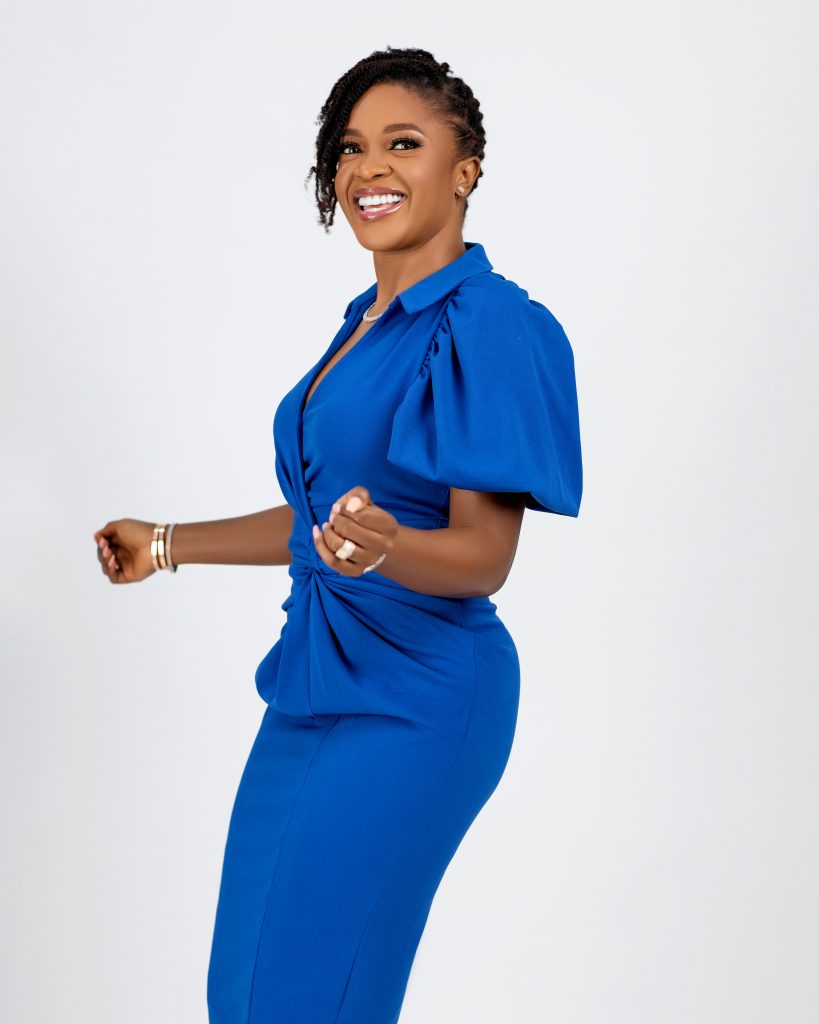 How do you balance being both in front of the camera as an actress and behind it as a director?
How do you balance being both in front of the camera as an actress and behind it as a director?
You have to love both. They’re two different aspects of filmmaking. As a director, I’m invested in the process of production and the value proposition that my world brings to the table, but as an actor, I’m invested in the believability of the character and how to help draw the best performance out of me and my colleagues in every scene. I enjoy acting. It’s second nature to me, and I love directing too. The real challenge is in producing the movies, which I also love. As a director, you’re both professionally invested in every scene and in every character to bring life to a script as you visualise it. As an actor, I focus on each scene while understanding the character and backstory of the characters I play. The balance is my understanding of each role and knowing which hat I’m putting on at each moment. Especially for me because I wear many hats. The most beautiful aspect of directing is having a competent team behind you making it all happen. As an actor, I simply do my job and try not to conflate the two roles, even when I wear both hats.
What advice would you give to young women aspiring to make it in Nollywood?
Firstly, do not play the sexist game of ‘woe is me because I’m a woman’. I never saw myself as a female filmmaker or actor, but a professional in all those areas. Don’t act like a victim. No role is worth degrading yourself for. Bring your professionalism into your workplace and let your value and talents shine, not your incompetence. You’re not struggling for a role with any man because they can’t have your roles, but you’re competing with women of your peers, so take time out to hone your skills until it’s second nature to you. When you step into an audition, organised or impromptu, ensure you’re always prepared. Know your value. Don’t overestimate or undermine your value. Be real with yourself because that’s the only way to make a true assessment and grow. A false reality will not allow you to grow. If you aspire to be a director or producer, do what everyone does: ask for help and get training. There are tons of materials online to help you, and unless you’re unsure of what you want because you think there’s a world out to get you, go at it with all you have, but be cautious with people so you don’t become a victim or a statistic in another person’s sinister agenda.
How do you manage to stay grounded and focused with all the success and recognition you’ve achieved?
All I do is work. Many people, men and women, go to work every day, and when they get home, they hang up their boots and relax. I don’t carry my accolades home. I don’t need it there. All I need is the loving warmth of my husband and children to make me feel safe and loved. I can recoup to go again to the battlefield, and so my home is my haven where I have my batteries recharged. Without this, I don’t know how else I would’ve coped. More importantly, I have God and His word to comfort me daily and keep me grounded, reminding me that I may be adored out there but I don’t let it get to my head, for all adoration belongs to God.
What can audiences expect from The Uprising: Wives on Strike 3 that’s different from the previous films?
The story will surprise you – you will come thinking you know what to expect but you’ll leave the cinema with your mouth open in shock! It can be seen as a standalone film. You don’t need to watch the others. I can say with confidence that it is the best of the series. I especially wanted this story to resonate in ways that we can all relate to in such a way that it reflects life, yet it still has those fundamental elements that make Wives on Strike what it is. The performances – every scene is a masterclass on acting! The characters will blow your mind, especially the role Hilda played in it. Many will be amazed by the new direction the story takes. All in all, it is a work of art that is better experienced than told.
How did the idea for the Wives on Strike series originally come about?
My husband was thinking about the Aba women riots and wanted a story like that but with comedy. I wanted a story that would address the child bride issue in the country. We concluded with the story and put together a stellar cast to execute it. It was a simple concept but with heart. Initially, to be honest, I didn’t think it would be this big, but it goes to show that if you’re committed to doing the best that you can, eventually, the people will buy into whatever you’re selling.
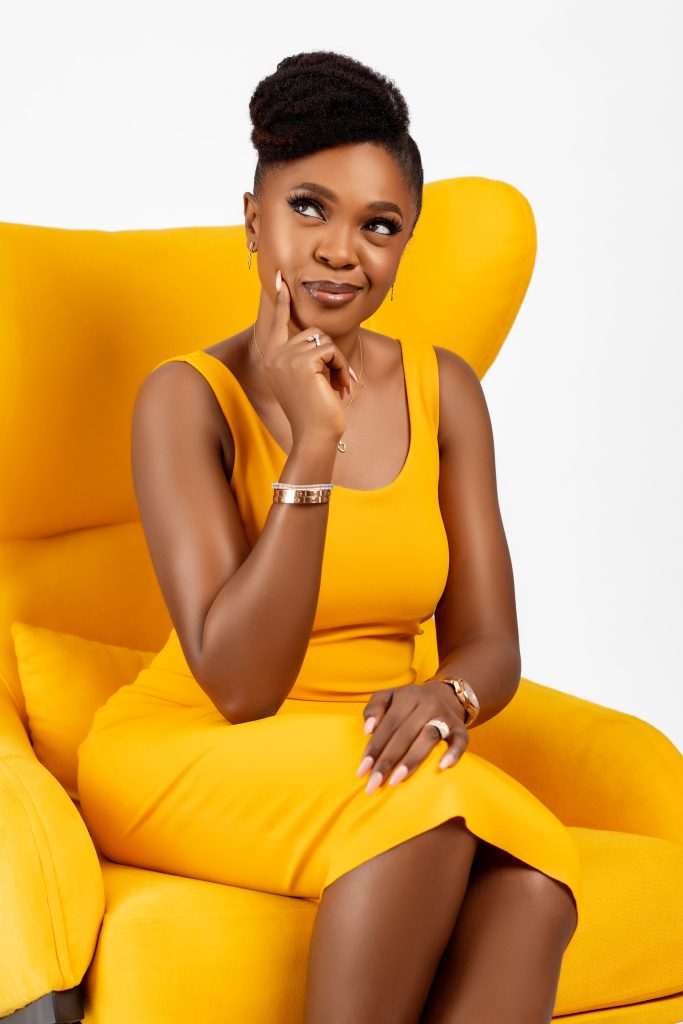 The movie deals with serious issues through comedy. How do you find the balance between humour and delivering important messages?
The movie deals with serious issues through comedy. How do you find the balance between humour and delivering important messages?
I have seen very compelling stories get very little audience exposure and very mundane content being blockbusters. Films are first and foremost about entertainment. It’s easier to swallow a bitter pill wrapped with sweets than to take it as it is. So we decided that comedy was the best medium to get this very important story out there. It got to areas of our country and into the hearts of many who wouldn’t have been touched with this subject any other way, and I’m glad that the exposure met our expectations. It was still a gamble, nonetheless. I would say it is also a favour that it had the reaction and traction that’s become the norm for the series.
What are some of the key themes explored in The Uprising that audiences should pay attention to?
Some of the themes are kidnapping, protest, revenge, betrayal, political oppression, community, violence, justice, friendship, and the bond between a mother and her child. The diversity of the women and their differences, though they sometimes overstepped their boundaries, did not affect their affection and friendship with each other. That foundation ensured that in such times when they needed each other to step up, each person in their way was available for all others when it mattered the most. Many will come out shocked, excited, angry, confused, sympathetic, and with a new sense of urgency for some of our themes in the movie, but everyone will be satisfied.
Did you encounter any challenges while producing or directing this third instalment of the franchise?
Filming isn’t easy. It has its logistical challenges. Every filmmaker knows this, and this is often factored into our budgeting. Whether it’s the disruption of area boys, or the lack of necessary props and locations to create something in particular, these are what makes us resilient and motivated to find ways and not excuses to surmount those challenges. In other words, yes we had challenges, but as they say “the show must go on”.
How do you feel the Wives on Strikeseries has influenced conversations around domestic violence and women’s rights in Nigeria?
The very first one opened up conversation in places where that seemed to be taboo. Before making the movie, I didn’t know that the child bride issues were across the entire north, south, east, and west of the nation. Some legislative changes were pushed in that period to challenge and enact laws to address the issue of child brides. I was glad with the results, and we only pray that this effort doesn’t stop.
Congratulations on becoming a grandmother! How does it feel to embrace this new role at 46 and how has this new chapter in your life affected your perspective on family and career?
Thank you. It feels great to be a grandma. I don’t take such things for granted. It’s a blessing to live to see your grandchildren. That’s most people’s dream, and God just handed it to us on a platter. And at 46? I couldn’t be more excited. It does change a lot for me. I have a different perspective on life. Suddenly, I’m not doing what I’m doing for my children alone, but it’s now for my posterity, my children’s children, and beyond. The idea of family takes on a whole new meaning. It transcends a generation or two, but now a third generation that’s from my husband and I. I feel so blessed. I am now a glam ma! (laughs).
What are some of the biggest challenges you’ve faced as a female filmmaker in the Nigerian movie industry?
I haven’t faced any major challenges as a female filmmaker, but as a filmmaker, I face the same challenges as all filmmakers. I have to be honest, the movies I’ve made have been done with no aspect of it being easier or harder simply because I’m a woman. I haven’t encountered any such clear distinctions to be able to make that call. Nollywood is such that if you have the funds to make your movie, and you have the expertise to do it, then you can make a film. The crew only responds to money. You’re either punished or rewarded at the box office on the merits of your work and not your gender. A competent crew, both male and female, do not take your job because you’re a woman but because you can afford them, and they can and want to work with you. I believe there are more challenges for actresses, but hardly any I know of for a female filmmaker.
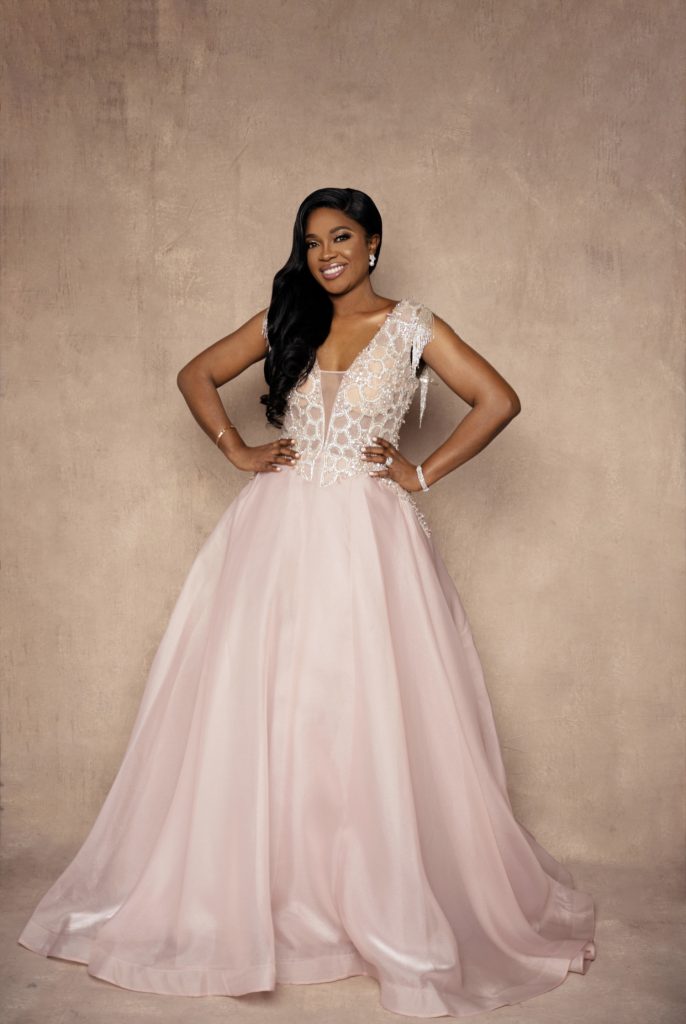 What are your thoughts on the representation of women in Nollywood, both in front of and behind the camera?
What are your thoughts on the representation of women in Nollywood, both in front of and behind the camera?
I believe we’re well represented. You can see that the top-grossing filmmakers in Nigeria currently are mostly women: Funke Akindele who is the highest-grossing filmmaker, and the second is Mo Abudu and her Ebonylife production. In the top ten highest-grossing films, we’re well-represented. What I’m saying is that all in all, there may be more men in general, but this isn’t as a result of any deliberate hindrance of women but may be of other factors such as funding and training to be filmmakers or the desire to be a filmmaker, to name a few. I’ve seen more and more women who had been comfortable just producing movies venture into filmmaking. There are more leading ladies than leading men in general, such that the number of top male leads is a problem sometimes for filmmakers. Actresses who can deliver are much more available than our male counterparts. This is so since, after the period when the marketers controlled film production, they were predominantly male. A few women like the late Amaka Igwe and Emem Isong held the fort for us during that era, and they paved the way for female producers to make inroads into the industry and establish their place. I was particularly helped by Emem and she’s still involved in production and more importantly in training actors like some I use in my movies on YouTube, and soon to be used in my cinema productions. She has been producing many of the big names in Nollywood cinema and movies generally. So, women in Nollywood have come a long way from asking for a seat at the table to building their tables. There is still a lot of work to be done, but we’re so far on the right path.
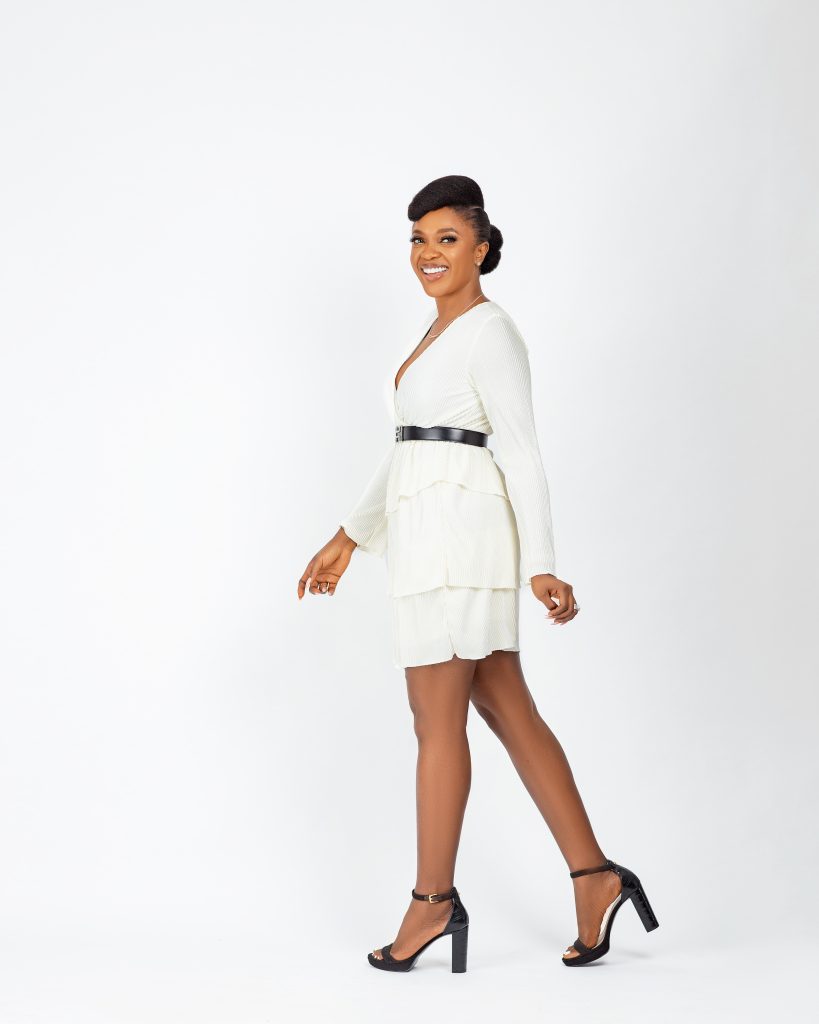

Dorcas Akintoye is a versatile writer with a passion for beauty, fashion, relationships, and culinary delight. With a keen eye for detail and a passion for storytelling, she adds a touch of elegance to every topic she explores. She is a writer at THEWILL DOWNTOWN.


